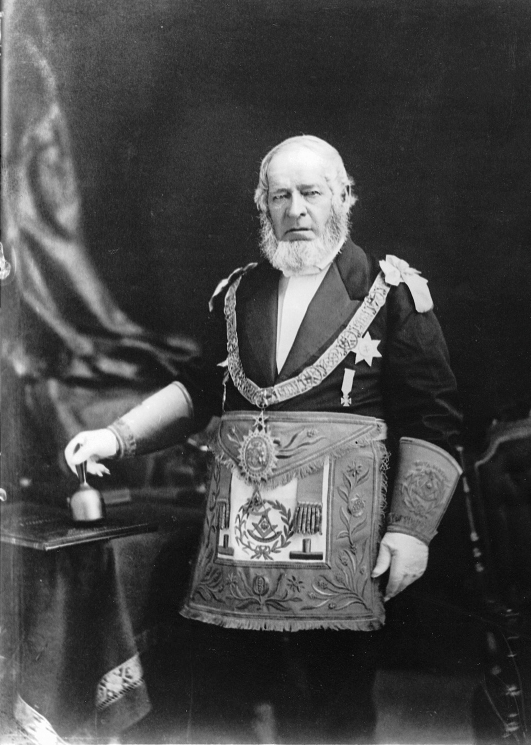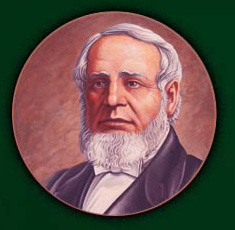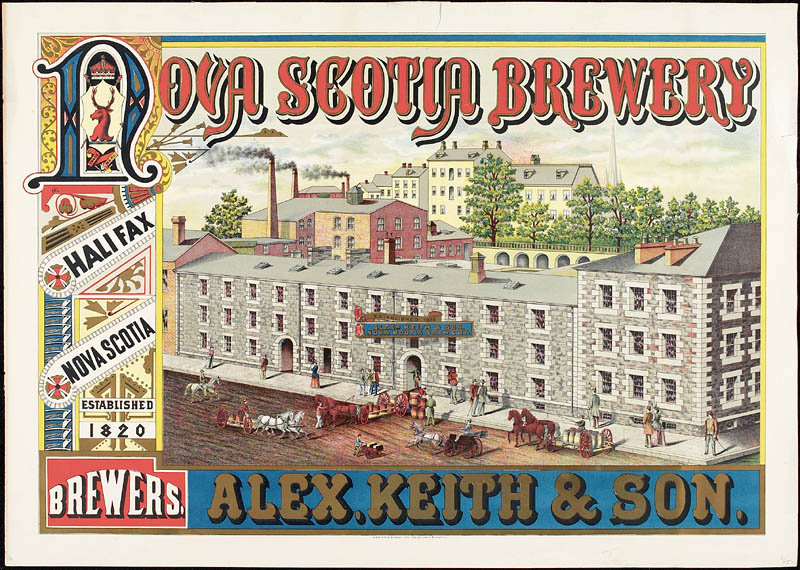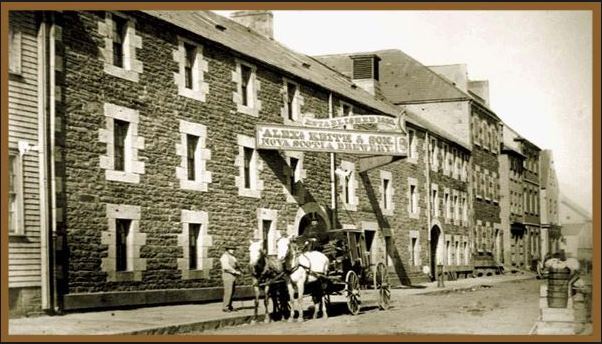
Today is the birthday of Susannah Oland (February 7, 1818-March 24, 1885). “She was the creator of a beer recipe which became the basis for founding Canada’s oldest independent brewery, Moosehead Brewery. Though she was credited with running the operation as well as acting as chief brewer, the business was incorporated in the name of her husband and sons. When her husband died, the partners sold their interests to a manager, whom Oland was able to buy out eight years later. She continued running the business until her death” in 1885. The business remains in the Oland family to this day.
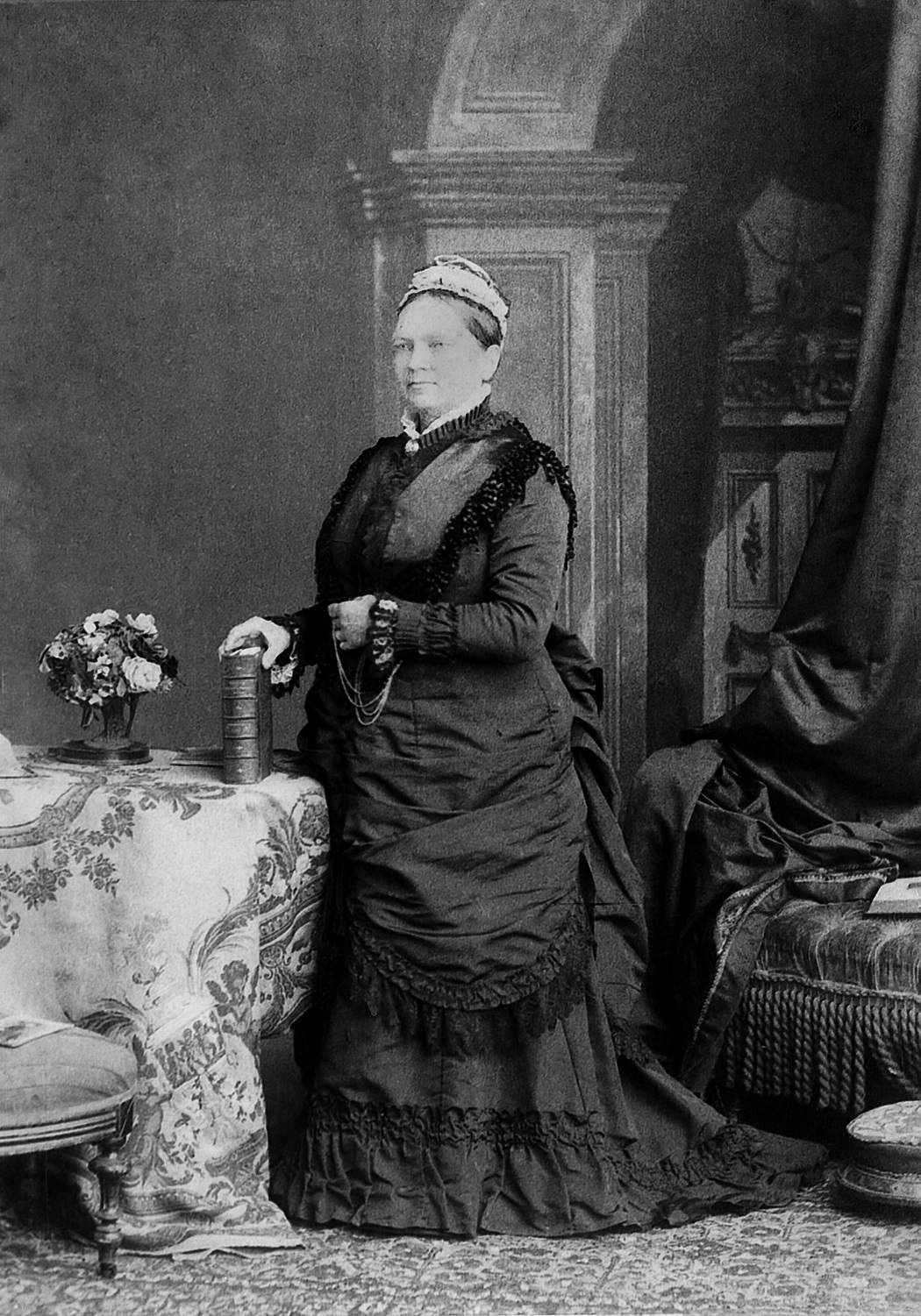
According to her Wikipedia page:
John supposedly studied as an Anglican minister at Cambridge, but worked as a tobacconist and a dealer in tea and beer in Bristol after he and Susannah married. He filed bankruptcy in 1844, and then studied accounting, going to work at the London and South Western Railway. By 1851, the family had reestablished themselves sufficiently to hire a servant girl and a nurse, and were living in Trowbridge, Wiltshire, England. A decade later, the family of nine was farming near Hawley, by Farnborough, Surrey (now in Hampshire), England. In 1862, John immigrated to Nova Scotia, Canada, leaving Susannah to tend the farm and family. He was employed with the Nova Scotia Railway, a part of the intercontinental railway project and she brewed beer. Within three years, the family was reunited and rented a house in Dartmouth, where Susannah set up her brewing operation in the garden shed behind their home.
Captain Francis de Winton, a friend of the family, suggested that they market Susannah’s “Brown October Ale” and John, whose time with the railroad had ended, agreed. On 14 August 1867 the business was incorporated with John designated as manager, places set aside for three of his sons, with funds provided by de Winton, George Harvey and Thomas Mowbray. Though Susannah was the chief brewer and had been the inspiration for the business, her name was not on the agreement. Because they started the business in the Turtle Grove District of Dartmouth, it was called the Turtle Grove Brewery. Within a short time, there were nine employees and the business was the third largest operating in Dartmouth. John’s name may have been on the paperwork, but Susannah ran the business.
When John died in a riding accident on 20 October 1870 Oland was left with no control over the brewery. Compounding matters, de Winton had been transferred to Gibraltar and the other two partners sold their interests to a manager, George Fraser, who had formerly been employed with a competing firm. Undaunted, Oland continued working at the brewery, which had been renamed the “Army and Navy Brewery”, in honor of her biggest patrons. For eight years, the business operated under that name, though it was destroyed and rebuilt twice because of fire. In 1877, after receiving an inheritance from a relative in England, Oland bought out Fraser and published a notice of the partnership’s dissolution in a Halifax newspaper. She began operating the brewery under the gender neutral name, “S. Oland, Sons and Company,” training her sons to be brewmasters. For the remainder of her life, she worked at the brewery; as of 2011 she is the only woman to have run the business.
Oland died while spending the winter in Richmond, Virginia, on 24 March 1885. After her death, as her will had stipulated, control did not pass to her eldest sons, but rather to her youngest son, George, with provisions made for her daughter Hulda. The business she drove to be incorporated just 90 days after Canada’s Confederation spawned two brewing dynasties in Canada, as after the 1917 Halifax explosion one branch of the family moved to Saint John, New Brunswick, later selling the Oland Brewery to Labatt Brewing Company, while the original company relocated to Halifax and later to Saint John. After several name changes, it became the Moosehead Brewery in 1947. It is the oldest independently operating and the largest privately-owned brewery in Canada.
And this account of both Susannah and her husband John is from the Canadian Encyclopedia:
John Oland was born on 14 July 1819 in Bristol, England. His family was of modest means and as a result he worked a variety of jobs before marrying Susannah Culverwell in 1842. Together the couple had nine children. John moved from job to job after he and Susannah married, working as a cigar dealer, draper, shopkeeper, commercial clerk, accountant and more. His restless spirit, however, made it difficult for him to hold a job for an extended period of time and ultimately undermined his financial security; he was forced to file for bankruptcy in 1844. He subsequently studied accounting and began to work for the London and Southwestern Railroad. The family soon thereafter began farming in nearby Surrey. Almost penniless, John decided in 1862 to emigrate to British North America, leaving Susannah to tend to family and farm. In 1865, Susannah and the children joined John in Truro, Nova Scotia, which was witnessing an upswing in economic activity due to the construction of the railroad.
By 1867, the Oland family had moved to Dartmouth. Struggling financially, Susannah supplemented what little money John earned by making beer in the shed at the back of their Dartmouth property, using an old family recipe. Her October brown ale proved to be so popular with the local inhabitants that a family friend, Captain Francis Walter DeWinton (1835–1901), suggested brewing on a larger scale. DeWinton, along with two other investors, provided the funds to start a commercial brewery. Because they began the business in the Turtle Grove area of Dartmouth — a Mi’kmaq community — the brewery was named Turtle Grove Brewery.The company was incorporated on 1 October 1867. On paper, John Oland was manager of the business, but in reality, Susannah oversaw virtually every aspect of its day-to-day operations. By many accounts, she supervised the brewing process, which was undertaken with the help of her three sons.
The new commercial brewery was situated on a 12.5-acre plot with 300 feet of frontage on Halifax Harbour. Halifax was ideal for a budding brewer because of the pronounced military and naval presence. Beer had long been part of the life in the armed forces. During the War of the Spanish Succession (1701–1714), the Duke of Marlborough, commander of the British forces, proclaimed: “No soldier can fight unless he is properly fed on beef and beer.” British authorities accepted Marlborough’s statement as gospel, and in the years that followed, British soldiers were given enough “beer money” to purchase five pints of beer a day. This, along with the fact that the overwhelming majority of the civilian population in Dartmouth and Halifax could trace its ancestry to the beer-drinking cultures of England, Scotland, and Ireland, gave an immediate incentive to anyone like Susannah Oland looking to capitalize on their knowledge of the art of brewing.
Taking advantage of DeWinton’s connections (he was military secretary to the Marquess of Lorne, the governor general of Canada), the brewery quickly grew to be the third-largest business operating in Dartmouth. Tragedy struck in October 1870, however, when John died in a riding accident. To make matters worse, DeWinton was transferred to Gibraltar and the other two partners sold their interests to a manager, George Fraser, who had formerly been employed at a competing brewery. Undaunted, Susannah Oland and her sons continued working at the brewery, which had been renamed the Army and Navy Brewery in honor of its principal patrons.
In 1877, after receiving an inheritance from a relative in England, Susannah Oland bought out Fraser and dissolved the partnership. She began operating the brewery under the name S. Oland, Sons and Company and trained her sons to be brewmasters. She worked at the brewery for the remainder of her life.




